Microhabitat hunters
In our science lessons, we have been learning all about living things and their habitats.
We went on a microhabitat hunt around our school to see if we could find any microhabitats and who or what was living there. We found many creepy crawlies hiding under a log including woodlouse, centepedes and worms.





Watch us while we work
Thank you to all the parents and grandparents who joined us this morning to watch us while we work. It was an opportunity to watch some learning in maths and reading and hopefully pick up a few strategies that can be used at home. Here are a few feedback comments from parents this morning:
“The children sat, listened and interacted well. It was lovely to see what they are like in class.”
“Great to see what happens in class. Really enjoyed it.”
“It was nice to see the classroom and teaching strategies.”
“Lovely being in class. Teacher had them engaged at all times. Good to see English and maths.”
“Great to see different ways we can help at home……different ways to practise times tables and retrieval in reading.”
30th September 2022 spellings
Next week, we will be focusing on double consonant words:
– appear
– different
– shop/ed/ing
– trapped
– happening
– opposite
– arrive
Latin: Salvette Omnes! Hello Everyone!
Year 4 are enjoying learning Latin and it is a brilliant way to support their literacy skills. The children have been exploring connections between Latin and English grammar and vocabulary.
Meet Minimus!
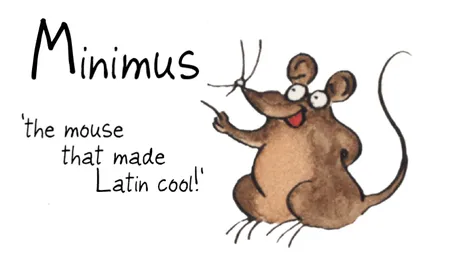 In our last lesson, the children learnt how to say “I am” in Latin and found out more about the family who live at Vindolanda.
In our last lesson, the children learnt how to say “I am” in Latin and found out more about the family who live at Vindolanda.
In pairs, the class had a go at acting out the story in Latin. One person was Minimus and the other was the person he was talking to.




Act out the comic strip with your child. Can they tell you the meaning of the phrase Quis es?
Challenge:
Can you think of English words that come from the Latin words “mater” and “pater”?
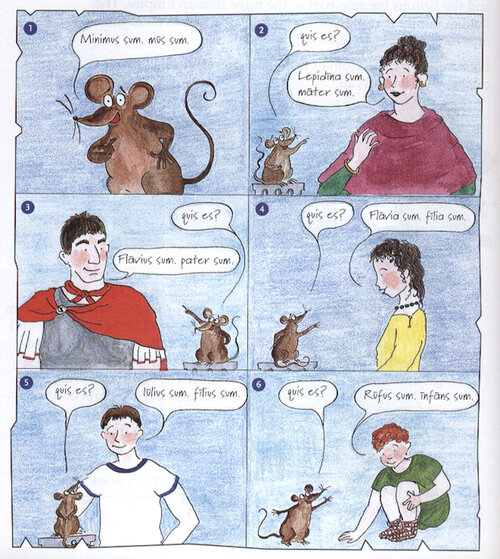
Writing – The Great Fire of London
We have been enjoying learning all about The Great Fire of London. (This is a YouTube link. Top tip for watching YouTube with your child: go to the settings cog along the play bar and turn off autoplay – this avoids an inappropriate clip coming up automatically, and helps to discourage your child from passively watching clip after clip.)
We loved imagining what it would have been like to have been alive during the Great Fire of London. We used the senses word mat to think about what we would have heard, seen, smelt and touched.

When writing, we turned the lights off in our classroom and listened to a roaring fire to get a feel of the sounds we might have heard from the burning fire.




Afterwards, we thought about how we would use our senses words within a sentence.
“I would hear people shouting and dogs barking,” said Joshua.
“I would get all my things from my room and run outside,” said Jack.
“I would feel sweaty and hot,” said Florence.
“The houses burnt because they were made from wood and were dry from the hot summer,” said Lily.
“They made a firebreak to stop the fire spreading,” said Cameron.
We thought about how we know all the information we do about the Great Fire of London because Thomas Farriner isn’t alive today to say if it was or wasn’t his bakery on Pudding Lane where the fire started. We looked at old newspaper clippings, pictures, maps and diary entries. We have particularly focused on Samuel Pepys diary. All of these artefacts tell us information about what it was like and what people did.
Ask your child to tell you three facts about the Great Fire of London.
Summer smile competition
Before the Summer holiday, we asked you to look out for smiles in your surroundings or even create a smile. Thank you to everyone who sent in photographs of their smiles. Today, we looked at the photos in collective worship and the pictures certainly made everyone smile and laugh. The prize for the overall winners went to Cameron in Year 1 and Emily in Year 2 for their variety of smiling examples- congratulations!
Take a look at some of the fabulous entries!
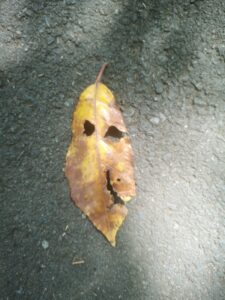

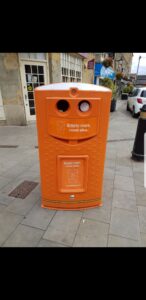
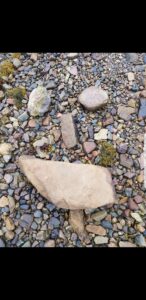
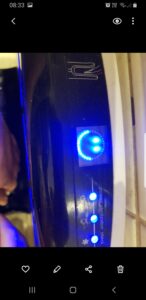

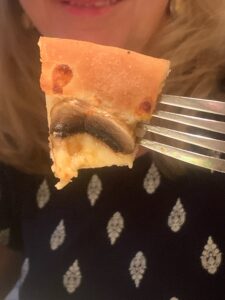
Living and Learning: I know that rights come with responsibilities
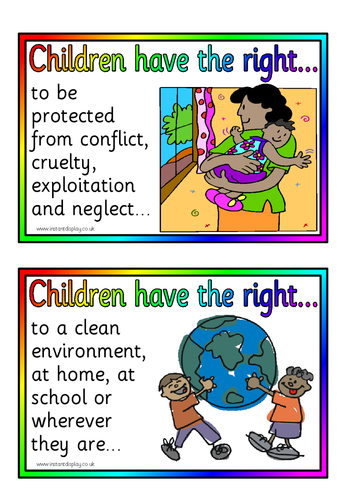
I have the right to play. I have the responsibility to play alongside others safely and respectfully. RalphI have the right to be fed and the responsibility to eat a healthy diet. Umar
This week’s message (Friday 30 September 2022)
Our message this week is an important one because it’s all about reading. The message comes from Mrs Latham (our Phonics and Early Reading Leader) and Mr Catherall (our acting Reading Leader, covering a maternity).
Early Reading and Phonics
We’ve started the year as we mean to go on – reading! Our Reception children have started Phonics lessons already – they’re rapidly acquiring the skills to become readers. We use the government validated systematic synthetic phonics scheme Little Wandle Letters and Sounds Revised.
Children in Year 1 and Year 2 have also got back into Phonics lessons quickly. The lessons happen every day and last half an hour (Reception children build up to this over time). In these lessons, children are taught how a letter or letters (graphemes) match to sounds (phonemes).
We also have reading practice groups for children to use and apply their phonics skills. These are small group sessions, led by an adult, where children read a book that’s matched to the phonics phase for the children in that group. The time to do this has been made available by moving to allocating e-books for children. The e-books are essential for children to share their phonics reading success at home. Please make sure you hear your child read the e-book every week.
Year 1 or 2 children who have secure phonic knowledge will begin to access a wider variety of books in school and to take home.
Children will also take a sharing book home to develop a love of reading. These books are to enjoy together and read for pleasure. Enjoy stories, predict what might happen and use different voices for the characters. Information books (non-fiction) can also be so much fun to share – finding out facts and discussing new information. Above all – make it fun!
Our recent reading workshop explains phonics and early reading in more detail.
Key Stage 2
‘Reading for pleasure is the single most important indicator of a child’s success.’ (OECD 2002)
Should my child be reading at home?
In Sphere Federation schools, we insist that children read at home. Failure to do so would mean that children are missing out on the numerous benefits of reading. Research tells us that children with reading difficulties are more likely to experience mental health problems later in life. To give our children the best chance of becoming readers at home, we ensure that reading at home is celebrated.
What should my child be reading?
Occasionally, we get feedback that adults at home aren’t sure what book their child is reading and when it should be in school. As children progress from Key Stage 1 to Key Stage 2, we want them to have more choice and ownership of what they read. For some families, this can feel less structured than it might have done when children were lower down school. Because of this, we’ve made some changes to how we read in Key Stage 2. Starting after the October half-term, we’ll be moving to a more structured system for reading at home.
What will this look like?
Our children are provided with the opportunity to read a variety of rich texts in school and at home. Children are always involved in the process of choosing what book they read at home and we place a high emphasis on choice of text. To ensure our children read a suitable range of suitable texts, we rotate between ‘solo reading’ and ‘group reading’ on a half-termly basis:
- Autumn 1: solo reading
- Autumn 2: group reading
- Spring 1: solo reading
- Spring 2: group reading
- Summer 1: solo reading
- Summer 2: group reading
Next half-term, your child will be ‘group reading’. This means, they’ll choose a book that they’ll read alongside some of their class mates. They’ll be set a target page to read to and will discuss what they’ve read with their group and an adult.
What if my child wants to read other books, too?
We love this! We’d really encourage you, if you can, to have lots of books at home. A trip to a book shop can be a wonderful and inspiring shared experience as a family – especially as the days are getting shorter and wetter! If you prefer to shop online, great! We’ve recently signed up with Love Reading 4Kids. This is a great website with a huge range of books at good prices. And, if you buy through this site you can support us here school – we’ll receive 25% of the value to spend on books!
Autumn is coming!
The children have been exploring natural objects found in our garden area. We collected a selection of leaves, bark, and vegetables that had grown over the summer and added them to our Autumn themed tuff tray. All the children share a common interest in our play dough area, this week we really explored our sense of smell and added cinnamon and clove!
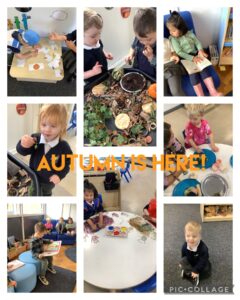
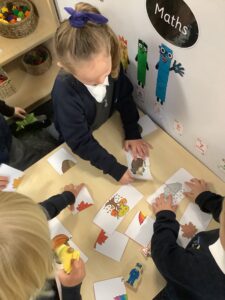
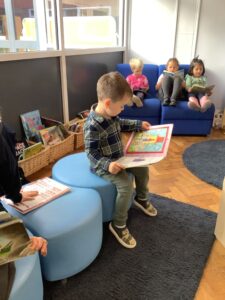
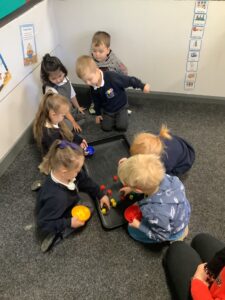
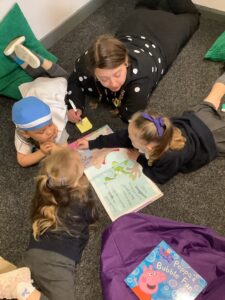
Next Thursday we will be going for our ‘Wellie Walk’ around our local area to see what other natural objects we can find. Please ensure your child is wearing suitable footwear, as it may get a little muddy.
You could encourage your child’s learning further at home by going for your own ‘Wellie Walk’ in your local area, your child can collect objects to bring back to nursery to share in our circle times. This is a fantastic way of developing your child’s understanding of the changing seasons and exploring new vocabulary!
Poetry Basket-
Each week the children will be learning a new poem from our poetry basket session. This week was ‘chop chop’. Ask your child to sing it with you at home!
Nursery now has its own dedicated email address to send in photos, achievements or any queries regarding your child’s development.
stjamesnursery@spherefederation.org
Happy Walking!
The Nursery Team
30 September 2022
There’s a social theme to this week’s Talk Time as we think about our speaking and listening skills.
Agree or disagree: speaking is more important than listening!
Spend a few minutes having a conversation about your day with a someone at home. After the chat, reflect on how much time you spent speaking and how much time you spent listening. Would the conversation be the same if you didn’t speak/listen as effectively?
Below are some statements about effective listening and speaking which may help you when deciding whether you agree or disagree on the above statement.
Effective listening entails simultaneously observing, understanding, and generating ideas.
Effective speaking means being able to say what you want to say in such a way that it is heard and acted upon.
In school this half-term, we’re focussing on some of the physical skills of speaking. In particular, we’re ensuring children project their voice. When discussing this at home, help by making sure your child speaks confidently, clearly and coherently (no mumbling!).